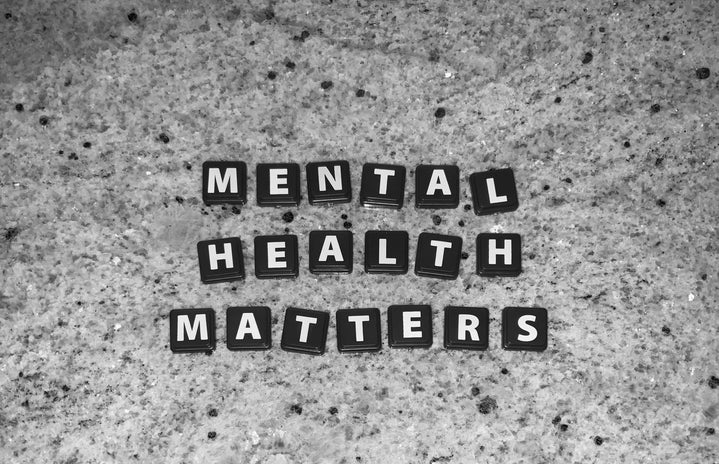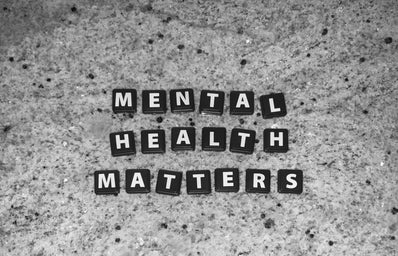Managing your mental health has always been a challenge for some people, and the added pressures and stresses of the pandemic has certainly impacted us, on an individual and community level. Attempting to wrap your mind around everything that’s currently happening can be exhausting, and thinking about what our future holds can be even more mentally draining. Fortunately, our campus community has a group of passionate students prepared to uphold the difficult conversation about mental health to end the stigma and provide support. I was able to sit down with the chapter president from our local chapter at Jack.org to discuss everything they do to cultivate a healthy campus environment with an ultimate goal of education and compassion.
Her Campus: Please introduce yourself and your role with Jack.org.
Alexa Gavrilidis: My name is Alexa Gavrilidis, I am in my fourth year in Integrative Biology and I’m hoping to pursue a career in the medical field. In terms of my role with Jack.org, I am this year’s president and I have been involved with Jack.org since my second year of university. This role mainly involves planning initiatives, helping organize events, overseeing the rest of the executive team, and holding biweekly meetings. The work this organization does is so beyond inspiring. Since joining, I quickly began to understand the importance of advocating for mental health and dismantling both the ongoing stigma that surrounds it and the existing barriers there are, such as the lack of culturally competent mental health services and the lack of accessibility, including financial barriers, fewer available resources in smaller, rural areas, and the wait time to see a professional.
HC: What does Jack.org do as an organization?
AG: Jack.org is a Canadian, nonprofit organization that’s youth-led — one of the most intriguing aspects of it to me. Our ultimate goal is to train and empower young leaders to revolutionize mental health throughout the nation. We obtain this goal by developing three programs that are globally recognized. Firstly, there is “Jack Talks,” where a young individual is given professional training to provide presentations regarding mental health, giving these presentations in high school and university formats. Secondly, there are “Jack Chapters,” such as our University of Windsor chapter, which consist of a group of students who work year-round to break down the barriers of mental health on campus and in our communities. We do this by running events and initiatives that promote our values. Finally, we have “Jack Summits.” They range from national, to regional to local, and they typically feature keynote speakers, presentations, collaborations, and discussion groups. It’s a great way to learn and interact with like-minded individuals in the network.
HC: How has the pandemic affected people’s mental health? How has Jack.org adapted its initiatives to reach people who have been affected by the pandemic?
AG: We were very hesitant about adapting to a virtual format since we wanted to ensure that our message and our values were still well received. Thankfully, even in just making the little tweaks to an online format, it has allowed us to reach a wider audience. In terms of how the pandemic has affected people’s mental health, I think it’s really opened our eyes to the importance of social interaction and the necessity of having a support group. I myself have really been craving social interaction, and I know this is true for many others and is a growing concern. Spending so much time with ourselves has given us the opportunity to turn inward. In addition, I think it also highlights this fear and uncertainty about both the present and the future, and this can inhibit individuals from completing daily tasks and create a sense of hopelessness. I think I’ve seen that light in people kind of dim, but at the same time I think we’re hopefully at a place where we’re becoming more positive. It’s important to note that even though we are all in the pandemic together, we’re not all experiencing the pandemic in the same way, and this goes back to how important it is to support each other and have compassion for yourself and those around you.
HC: What can we do, as a community, to combat the stigma behind mental illness?
AG: Knowing how to be there for others is super important, and Jack.org actually has a different division called “Be There,” which highlights how to be there for someone with their five golden rules: 1) saying what you see, 2) showing you care, 3) hearing them out, 4) knowing your role, and 5) connecting with professional help. It really comes down to compassion and keeping the conversation going. This is one of Jack.org’s main goals: keeping the conversation going by talking to your friends, family, neighbours. Honestly anyone willing to listen. The more that we share, connect, and be vulnerable, the less taboo there will be around the topic of mental health. Dismantling the stigma is especially important in different cultures, which I know isn’t talked about enough. So the more we can do to offer our place of support is super important. Even if it’s just a small step, the more progress the better. Education is also so important. Striving to educate ourselves and demand for a more comprehensive mental health curriculum in our schools and institutions is an integral part of revolutionizing mental health.
HC: How can people get involved with Jack.org?
AG: At this time, our general volunteer applications are closed. However, joining a chapter or even creating a chapter is always possible. We have our executive applications going out, typically in the middle of March, and while we do consider having experience with Jack.org in the application, we encourage anyone to apply. While these are in reference to our University of Windsor chapter, there’s also Jack Talk speakers, as I mentioned earlier, as well as a network rep. If you’re interested in either of these positions, all you’d have to do is search up “Jack.org Jack Talk Speaker/Network Rep Application” and all the information will be there!
HC: Does Jack.org have any events coming up that you’d like to promote?
AG: We are very excited for the new year and the possibility of introducing more in-person events. To name a few, we will be distributing mental health care packages all over the city at the end of January to anyone who signs up — more info can be found on our Instagram in the coming weeks — collaborating with local organizations such as Noah’s House and the Canadian Mental Health Association to host a fundraiser gala, and holding our fourth local summit. This summit is targeted towards passionate youth mental health advocates in the Windsor-Essex area looking to learn more about mental health. It is open to high school and university students, completely free of charge. We have keynote speakers, presentations, and collaborations focusing on important topics such as self-care, learning how to become a better mental health advocate, distinguishing social media activism vs performative allyship, and many more.
Additional Resources:
Student Counselling Centre: Free 24/7 counselling to University of Windsor students, completely confidential and provides assessment and crisis short-term professional counselling. 519-253-300 ext. 4616.
My Student Support Program (MySSP): A campus-wide app that is completely free and provides confidential counselling.
BeThere.org: Created by Jack.org; engaging, comprehensive resource to learn how to support someone struggling with their mental health.
Good 2 Talk: Free 24/7 confidential counselling services by professionals for post-secondary students. 1-866-925-5454.
Kids Help Phone: 24/7 nationwide, free, confidential, professional counselling offered in both English and French. 1-800-688-6868.
Canadian Mental Health Association: Free, one on one counselling, therapy groups, substance use and bereavement groups. 510-255-7440.
Wellness Together Canada: Government run program; online, free, confidential.
Check out Jack.org’s website for more information, and be sure to follow Jack.org at UWindsor on Instagram and Facebook.


